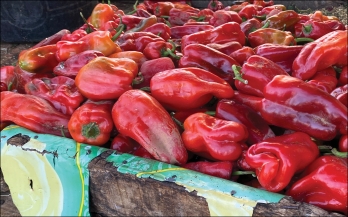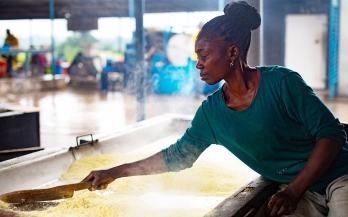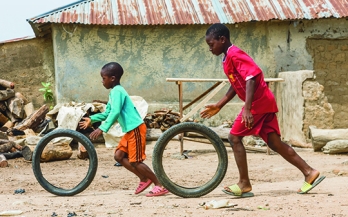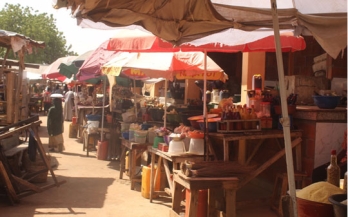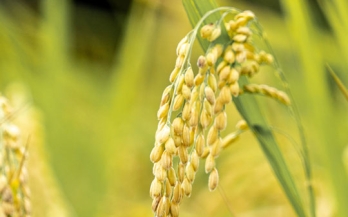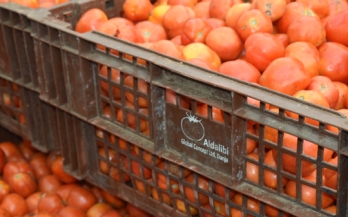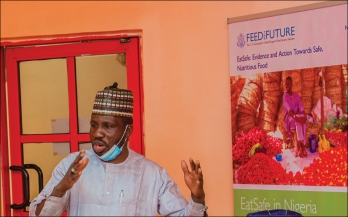EatSafe collected samples of seven nutritious commodities to assess the relative exposure and risk of foodborne illness from consuming products commonly sold in traditional food markets in northwestern Nigeria.
Read our ninth story in the series on The Food Crisis: What's Happening, a collection of work on the current events and the impact communities are seeing on a global scale. The Food Crisis is affecting everyone socially, economically and nutritionally. Michael Ojo and Joyce Akpata discuss newly published dire statistics on Nigeria's poverty index, and how urgent action is needed.
As elaborated in a GAIN evidence brief, poor-quality diets and insufficient food quantity are linked to reduced work capacity. This suggests that the malnutrition burden can be partly addressed through a win-win-win approach which improves individual lives, business outcomes, and national economies.
Read our seventh story in the series on The Food Crisis: What's Happening, a collection of work on the current events and the impact communities are seeing on a global scale. The Food Crisis is affecting everyone socially, economically and nutritionally. Joyce Akpata, Head of Policy and Advocacy at GAIN Nigeria, discuss the wide reaching ripple effect the economic crisis will have on Nigeria, affecting the most vulnerable in society, and what actions need immediate attention.
This GAIN working paper describes the process used by EatSafe in Nigeria to identify and design innovative interventions to improve the safety of nutritious foods in traditional food markets.
Malnutrition (hidden hunger) which means deficiencies of vitamins and minerals poses severe health and economic threat to Nigeria. It remains one of the leading causes of mortality among children under five and pregnant and nursing mothers in Nigeria.
As part of critical knowledge generation to inform policy development and stakeholder alignment on the prospects for rice fortification in Nigeria, a detailed landscape analysis of Nigeria's rice sector was undertaken along with a technical feasibility assessment of the opportunities and viability of rice fortification in Nigeria.
The PLAN Nigeria project focused on tomato value chains and employed two models in its theory of change i.e. improving coordination among value chain actors through an Alliance, and building capacity and encouraging SMEs to adopt improved practices and technologies through Business-to-Business (B2B) mentorship.
GAIN and partners, together with the Kaduna State Government in Nigeria, developed and implemented the 'Eggs Make Kids' campaign, launched on World Egg Day in October 2019.
To increase consumer demand for improved food safety, EatSafe is testing four interventions that seek to change consumers and vendor behaviors in two traditional food markets in Northwestern Nigeria.
